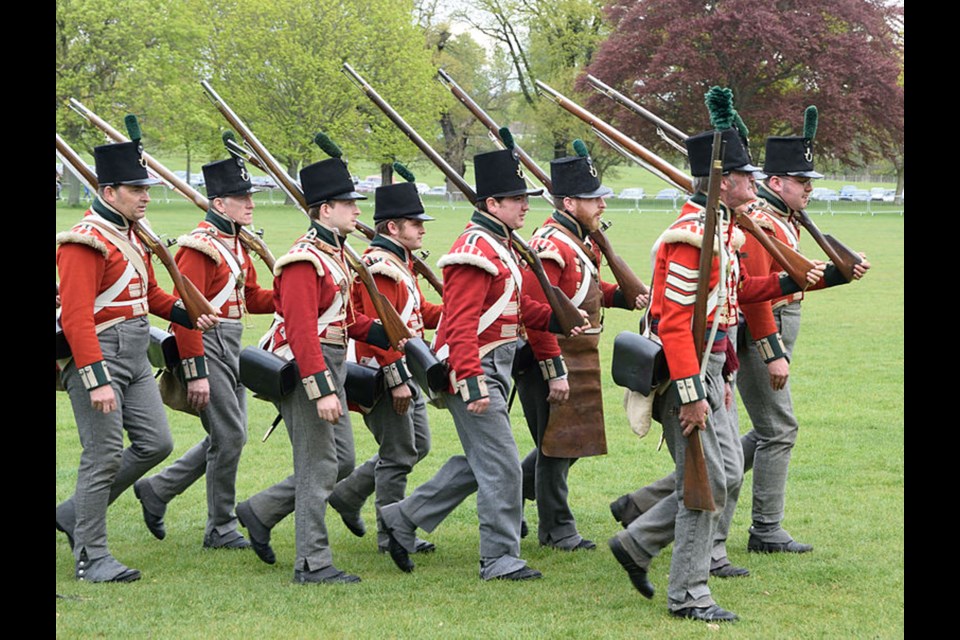Joseph Orchard led a remarkable life, even before becoming one of Innisfil’s early settlers.
Orchard was born in 1794 in Somersetshire, England. Like all children of his generation, he grew up in the shadow of conflict, ever aware that just across the narrow English Channel lay the hostile France of Emperor Napoleon Bonaparte.
As a teenager, Joseph enlisted in the British army. Many young men joined up for the enlistment ‘bounty’, a cash award of considerable sum designed to serve as an enticement, but this doesn’t seem to be the case with Joseph. After all, his friends and family had the wherewithal to twice ‘purchase’ him out of service - in effect, paying a sum to have him released from military obligation - only to be stunned when Joseph reenlisted each time. Since he came from some wealth. Joseph must have been enticed by visions of martial splendour or battlefield glory.
Whatever the motivation, Joseph found himself member of the 68th Regiment of Foot and was shipped out to fight the French in Spain. Throughout 1813 and 1814, the British army advanced up the Peninsula and into the heart of Napoleon’s empire. The war finally came to an end with Napoleon’s abdication in 1814.
Joseph decided to retain the army as a career and was posted to Ireland, where he met and wed 14-year-old Mary Beedham. In 1818, his regiment was sent to Canada. He and Mary never left the colony.
In 1831, Joseph Orchard was granted a discharge from army and, two years later, a 100-acre parcel of land in the largely unsettled wilderness of Innisfil. The family settled on the south half of Lot 40, Concession 11 (on what is today Lockhart Road). They must surely have marvelled at the isolation of their new home and the immensity of the task of transforming forest into farm.
Yet, they persevered, and ultimately succeeded. The first crude 18 x 14-foot log shanty eventually gave way to a fine frame house, and the few initial acres of stunted crops evolved into golden fields of wheat swaying gently in the wind. Joseph Orchard was a modest man, but by the 1850s he had every right to be proud of the farm he and Mary had established.
Next time, we’ll learn about the tragic end to Orchard’s story



